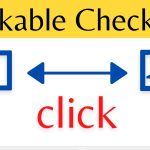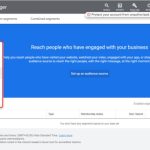Pressure washing is the process of cleaning surfaces with high-pressure water sprays. It doesn’t require a lot of technical skill. It can effectively clean concrete, wood decking, aluminum, or vinyl siding on homes, sidewalks, and more. The high-pressure jet removes mold, rubber, dirt and other stains from concrete. It helps wash off finishes that fade on wood surfaces and helps keep house siding looking new.
How to start a pressure washing business
Starting a small pressure washing business can be accomplished with minimal investment in equipment and training, but the job requires physical fitness, stamina, and entrepreneurial skills. Learning how to operate the pressure washer only takes a few minutes. Still, the skill to safely and effectively clean different surfaces can only be achieved through experience or professional training. In many states, you obtain a contractor’s license and prove your educational and experience claims. Get training by working for a power washing company or taking certification courses in continuing education or trade schools.
Requirements needed to start a Pressure Washing Business
The plan doesn’t have to look professional, but it should detail all aspects of your pressure washing business. Include lists of equipment and supplies, types of customers, prices, necessary starting and operating capital, and anticipated expenses. Visit the US Small Business Administration website for free business plan and start-up information.
Apply for a local business permit at your county clerk’s office, as well as your state tax registry and hiring license from your state department of revenue and business regulatory offices, if applicable.
Licenses and permits
Commercial Liability Insurance: You will work on the client’s property and will be responsible for damages in the event of accidents.
It may seem simple, buy some equipment, train yourself a bit, and then blow water on things to clean them. In most states, however, the dream of running a pressure washing business is regulated to protect the environment. You may need state, municipal, or local business licenses and permits to operate your business and demonstrate your knowledge of federal and state environmental laws.
Regulated Activity: The water you use in your pressure washing business is probably treated with chemicals, and after using it to clean a sidewalk or building, that dirty water must go somewhere. The United States Environmental Protection Agency regulates what is allowed to flow into sewer systems, storm drains, and natural water bodies under the Clean Water Act of 1972. Water can end up damaging both the environment and the people who live in that area. The wastewater used in your operation cannot be discharged into sewers or storm drains if they contain pollutants or cleaning agents.
Occupational Business Licenses and Permits: Many states and localities require that a pressure washing business owner obtain an occupational license. This basic business license permits you to operate a certain type of business. Some cities or towns may require you to obtain a permit to operate in certain areas or perform certain work types. You may be asked to obtain a single permit or multiple permits to do different jobs.
Ultimately, the requirements vary by state, so you need to do your research before launching your business. Visit your state’s business licensing website, sometimes called the secretary of state’s occupational licensing department; Alternatively, it may be known as the main business website for your state government. Here you can check the licensing requirements for pressure washing companies. Also, visit your city or local government website to determine if you need to meet any additional requirements. Failure to comply with the licensing and permitting requirements for your business can result in heavy penalties against your business as well as against you.
A range of requirements: Each state has its own licensing and permitting requirements, so there is no single set of steps to satisfy all jurisdictions. Some states are relatively moderate in regulating pressure washing businesses. For example, in most circumstances, Michigan does not require you to obtain a general business license to operate. Still, it does require that you obtain a wastewater discharge permit from the Department of Environmental Quality or your local water treatment plant.
Please note that laws and licensing requirements change from time to time. Your best bet is to look up the specific requirements for the pressure washing businesses in your city and state. The easiest way to do this is to do a Google search, using your state’s name and the words “pressure washing license.” Then do the same search for your city or town.
Business skills
Purchase business cards, flyers, brochures, vehicle signs and portable sites from your local print shop and sign manufacturer. These marketing aids are distributed to potential clients and increase your visibility while at work and driving around town.
- Snap washers
- Hoses
- Tips for different sized hoses
- Turbo nozzle for cleaning concrete
- Surface cleaner
- X- Jet (nozzle for houses, roofs and tall structures)
- Chemicals and soaps
- 0 ″ Flat Surface Cleaner
- Turbo injector
- 24 ′ extension rod
- 100 ′ of 3/4 ″ quality water hose
- 100’4000 PSI Goodyear High-Pressure Hose
- 110 ′ Commercial Fill Hose
- 12 ′ to 18 ′ extension rod for second-floor access
- Gutter cleaning bar
- High-performance rod rated PSI 4800
- Four Head Aluminum Water Broom
- 5 Gallon Biodegradable Concentrated Soap for Super Household Washing
- Simple Awesome 1 Gallon Degreaser (Great for Driveways and Walkways)
- 4800 PSI Capacity HammerHead Surface Cleaner, Double Acting Swivel Polyurethane Coating; reduces cleaning time by 60%
- Commercial grade rotary turbo nozzle (great for removing gums and oil stains)
Complete set of pressure tips
The investment required to get started relatively low, although pressure washers can cost anywhere from a few hundred dollars to twenty thousand. Hoses can also cost anywhere from $ 50 to $ 1,000, depending on the type.
It is best to buy the best you can afford when you are starting. If you have limited start-up capital, a smaller, less expensive electric washer will be fine. Just keep in mind that it will take longer to do commercial work and you will have to replace it sooner.
Suggestions and considerations:
Before you start, rent a pressure washer for the weekend, or borrow one and pressure wash your own home. Keep in mind that it will be more difficult for you at this stage because you will not have all the correct tools and experience. (It gets easier.)
When you choose which pressure washers to buy, decide between cold water and hot water from pressure washers. You need to consider what you plan to offer in terms of services, and you need to consider how much you can spend on cleaners and cleaning chemicals.
Hot water is a natural emulsifier, which means you don’t need a lot of extra chemical help to remove dirt and other stubborn, sticky substances. Hot water and the raw cleaning power of steam will reduce your dependence on cleaning agents, saving you money.
Unlike cold water machines, hot water/steam machines can handle cold weather jobs. You can use hot water/steam machines in fleet washing, flatwork, environmental cleaning, and home washing. You don’t want to use hot water or steam on wood surfaces, as it will cause the wood fibers to soften and swell.
Larger pressure washers will hold more water. If you are concentrating on residences, you may be able to start with a smaller pressure washer.
The amount of pressure the washer has is also important. The higher the psi (pounds per square inch), the stronger the water will come out of the hose, making the job faster and more effective.
If you plan to invest in a pressure washer, be sure to choose a vendor who can offer you the best technical support available. Make sure the equipment you buy is easy to maintain and that its parts are readily available.
Advantages and disadvantages
Advantage:
Wide variety of surfaces to clean.
Cleaning will have to be done regularly, so the potential for repeat customers is good.
Large contractors often refuse to take small jobs. These are opportunities for you.
The earning potential can be $ 40 to $ 60 an hour.
Disadvantages:
Homeowners can buy their pressure washers and do it themselves.
Zoning restrictions can limit your working hours.
Environmental protection laws can regulate the use of chemicals and soaps.







